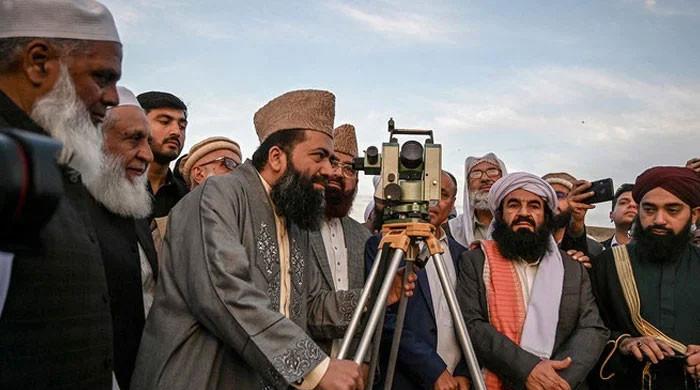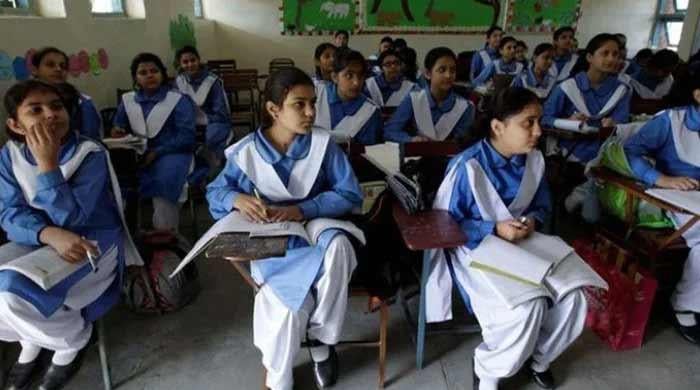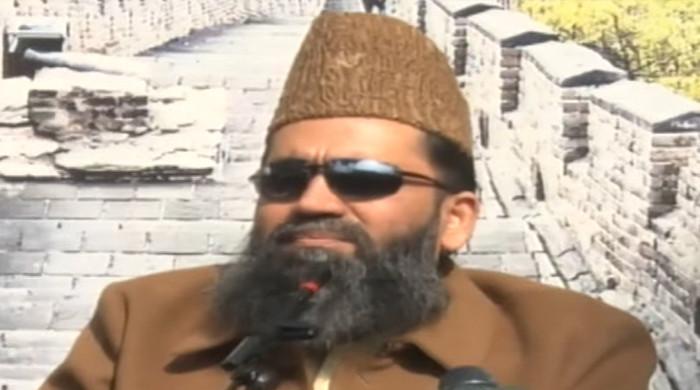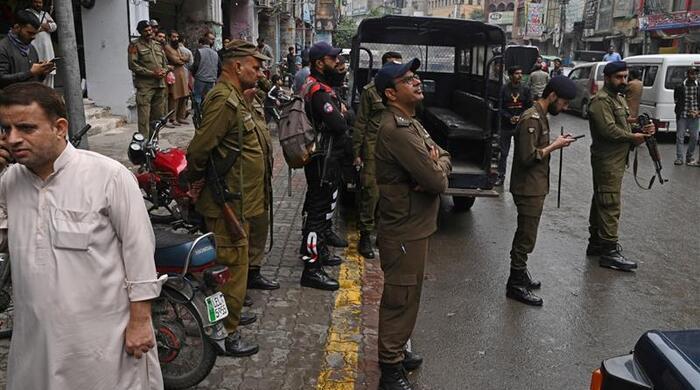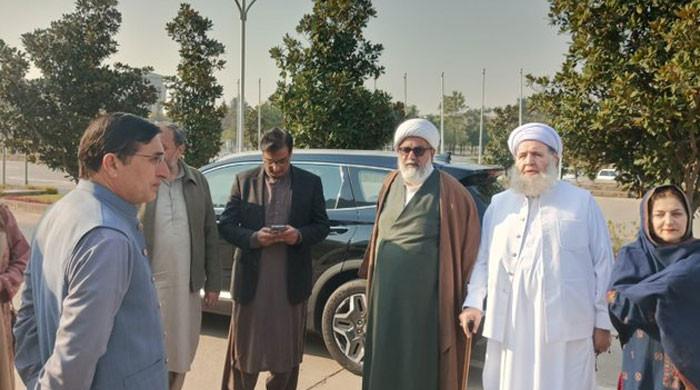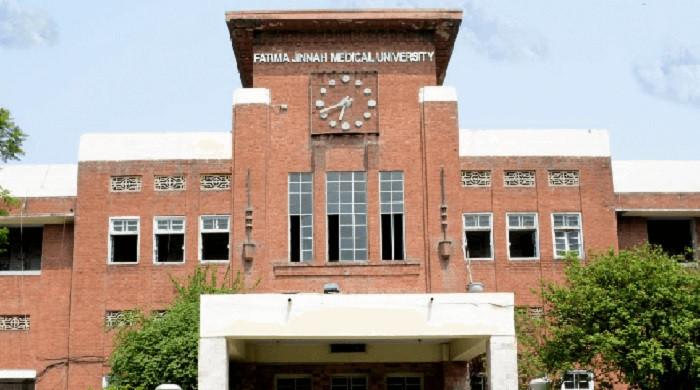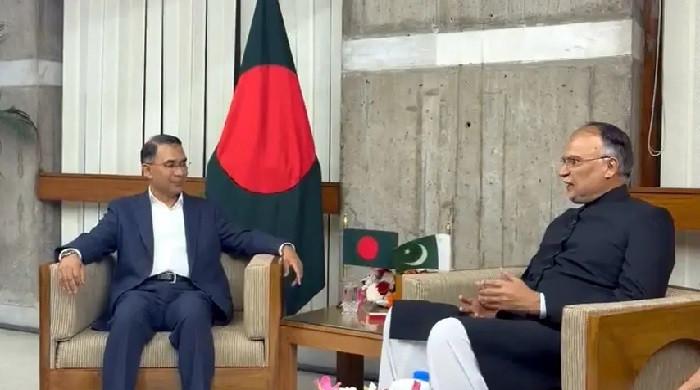APC proposed as major political parties stress need for political harmony
Representatives from PML-N, PPP, PTI, ANP, NDM and MQM-P join conference
July 06, 2023
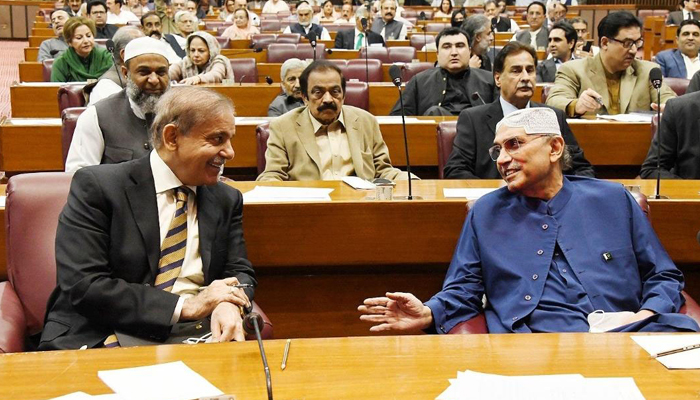
- CRS CEO highlights increasingly harsh political discourse.
- Participants stress importance of exploring common grounds.
- Seminar's outcomes to be shared with parties' leadership.
ISLAMABAD: Pakistan's major political parties have reached a consensus on organising an All Parties Conference (APC) to address the growing problem of politically-motivated extremist language that may incite hatred and violence, The News reported Thursday.
The parties reached this consensus during a dialogue titled ‘Common Resolve for Political Harmony,’ organised by Communications Research Strategies (CRS), a pioneer in strategic communications and research-based interventions in the country.
Senior parliamentarians and politicians representing seven prominent political parties, including the Pakistan Muslim League- Nawaz (PML-N), Pakistan People's Party (PPP), Pakistan Tehreek-e-Insaf (PTI), Awami National Party (ANP), National Democratic Movement (NDM) and Mutahidda Qaumi Movement-Pakistan (MQM-P) emphasised the need for an APC or any other mechanism that would enable constructive dialogue among political forces.
Adviser to the Prime Minister Qamar Zaman Kaira, Senator Afrasiab Khattak, Senator Pervaiz Rashid, PTI Information Secretary Raoof Hassan, Senator Anwarul Haq Kakar, SAPM Romina Khurshid Alam, MNA Sabir Qaimkhani, member CEC PPP Chaudhry Manzoor Ahmad and Information Secretary ANP (Punjab) Nadeem Sarwar represented their parties.
Zafarullah Khan, former Pakistan Institute of Parliamentary Affairs (PIPA) executive director and constitutional literacy advocate, moderated the dialogue.
Welcoming the participants, CRS CEO Aniq Zafar highlighted the emerging situation in the country where the political discourse was becoming increasingly harsh, with the potential for violence by non-state actors against political forces.
Recognising the gravity of the situation, participants stressed the importance of exploring a common ground through the Charter of Democracy (CoD) to address key structural issues that hindered political and economic growth in the country.
One of the primary objectives discussed during the conference was to develop a well-thought-out national consensus against extremism and terrorism, leaving no soft corners for the existing or new terrorist groups.
The participants strongly advocated against using such groups for political engineering and called for immediate de-weaponisation of society to curtail the potential threat of violence during the upcoming elections.
Additionally, the seminar shed light on the ‘economy of terrorism,’ which perpetuated the menace of terrorism in the country.
The participants acknowledged the need to investigate and address the financial sources that fueled terrorist activities, emphasising its impact on foreign and strategic policy choices.
To strengthen the political process, the participants expressed interest in establishing a ‘Truth and Reconciliation Commission.’
Such a commission could play a vital role in facilitating reconciliation and resolving past conflicts, contributing to the overall stability and inclusivity of the political landscape.
In conclusion, the representatives jointly agreed to share the seminar's outcomes with the leadership of all political parties through a formal letter.
They also advocated for the timely convening of an all-parties conference (APC) before the elections for a comprehensive debate on the code of conduct for the next elections, ensuring that all voices were heard and represented.
This concerted effort towards inclusive dialogue and cooperation among political parties reflects a shared commitment to a free, fair, and peaceful electoral process in Pakistan, ultimately fostering national unity, stability, and progress.




